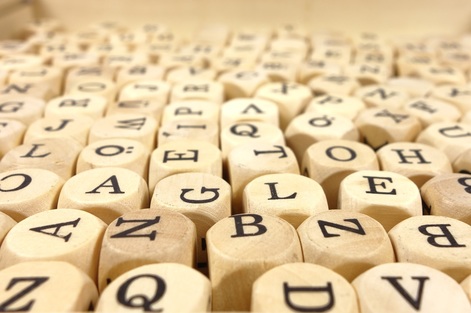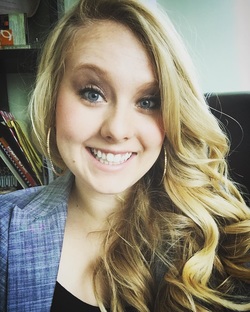|
NORMAL. A word that we often use very flippantly. But what does it really mean? I was recently talking to a friend about how there are taboo words in the Mental Health field. Some examples include: "Normal", "Crazy", "Fat", and many more. I am very careful when I choose to use these words, because of the potential for negative impact on someone else's life. My friend said that she had no idea of the magnitude of those words until I gave her examples in which they negatively affected someone else. In no way am I saying that we need to walk on egg shells and be terrified of the words that are coming out of our mouth, but I am wanting to bring awareness to the fact that words are powerful and can have a major impact. How do the words that you use affect those around you? Now, if you have read my previous blogs, "My Story", "The Tidal Wave of Grief", "Are You In An Unhealthy Relationship?", you know that I do not like the idea of making certain subjects taboo. I feel that nothing is too taboo to talk about. Many subjects in our society are made taboo though, which causes for shame and isolation for those who have experienced these taboo subjects. Which therefore results in them not getting the help and support that they need. However, when I encourage you to be cautious of using these words, it is not because I want you to avoid them and make them taboo, but rather I want us to notice that in saying these words, we could potentially cause someone else significant pain. The tongue is a powerful tool that has the potential to cause significant damage that cannot often be reversed. Have you ever been given a label? How has that label affected you? "Normal." This word can be used to describe so many different things, but when it comes to comparing people, I feel that the term normal is not the best word that could be used. How do we really decide who is "normal", and who isn't? If you are someone that has been classified as "ab-normal", this is quite exclusive. I talked about this a little bit in my blog "My Story". My brother had a disease which affected his physical appearance and therefore was not often treated or labeled as "normal". Because of this, he often wondered why he was treated differently. He felt normal, just like anyone else. He did not feel like there was anything wrong with him. However, everyone else treated him like there was and therefore excluded him from the "normal" group. In the Mental Health field, "normal" is especially avoided, because you are dealing with clients who often do not feel like they fit in, due to the mental challenges that they face. They did not choose these challenges, nor do they enjoy them. However, these are often the people that are put in the category of "abnormal", because they experience things differently than the majority of the population. Everyone WANTS to be and feel normal. As a counselor, I have seen the power in normalizing an issue that someone is experiencing, it can be life changing for them. They just want to know that they are not alone in the way that they are feeling. We as humans are constantly comparing ourselves to others trying to figure out if what we are feeling and doing are "normal." We strive for normalcy and hope to gauge closer on the scale to normal than to abnormal. We just want to fit in with everyone else. "Crazy" This word can be very stigmatizing, especially in the Mental Health field. Who wants to be classified as CRAZY!? I can pretty much guarantee that no one does. Crazy holds its own meaning just in the way that the word sounds. This word though is used so flippantly. How many times have you said to someone, "you are so crazy"!? Did you think about how that might have affected the other person? It might have been meant as a joke. But the fact that we can use a word that holds so much meaning in such a light hearted way, shows that we do not stop and give it the weight that it deserves before it comes out of our mouth. "Bipolar, Borderline, Schizophrenic" Sadly, once people are given a diagnosis, they often lose their identity to the given diagnosis. You may hear someone say, my "schizophrenic cousin", my "bipolar husband", etc. The label that they have been given is now attached to them every time they are referred to. They are no longer just John, Betsy, or Cindy. Labeling someone is very serious, as this often sticks with them long term. That label can never truly go away, as usually with this kind of label, it sticks in their medical record for the rest of their life. Labels unfortunately affect the way that people view others and knowing that someone has one of these labels is often very stigmatizing. Do you have a friend or a loved one that suffers from Mental Illness? Do you treat them differently because of the illness? "Fat" I have a friend who works in an eating disorder clinic and she brought this word to my attention when she scolded herself for using it. I had not put that much thought into when and how I was using that word. I will admit, I had said it about myself. How many times have you referred to yourself as fat? In using these words to describe yourself, did you feel uplifted? Did you walk away from that "conversation" with yourself pumped and ready to take on the world? I can pretty much assume that you walked away feeling absolutely HORRIBLE about yourself. In no way do I feel that this word carries any positive meaning. I cannot think of a way for it to be used to uplift oneself or others. As a society, we allow ourselves to use such negative words when referring to oneself. Why do we allow that? This word is often used by women to label other women. It is used in bully situations to make someone feel bad about themselves. I could literally think of dozens of ways that this word has been used and it is not used to encourage someone else. Women are tormented enough by this term in our society. We strive to be perfect and look perfect. To look like the unrealistic/unattainable photoshopped pictures in the magazines. These images give us unrealistic expectations for ourselves and others, can we not just love ourselves and our bodies for what they are? Find things to appreciate about yourself. I guarantee you, without even seeing you that you are beautiful and perfect - JUST THE WAY YOU ARE. Have someone else's words affected you in a hurtful way? How can your words be encouraging to someone else today? Be Mindful. Choose Your Words Carefully. Be Encouraging. Brittany Wingfield, MS, LPCC
0 Comments
Your comment will be posted after it is approved.
Leave a Reply. |
Nurtured Hearts Counseling's BlogBrittany WingfieldI am a Licensed Therapist in Lone Tree, Colorado and my goal for this blog is to explore taboo subjects that no one is willing to talk about and I am eager to bring awareness to. Facebook Feed |


